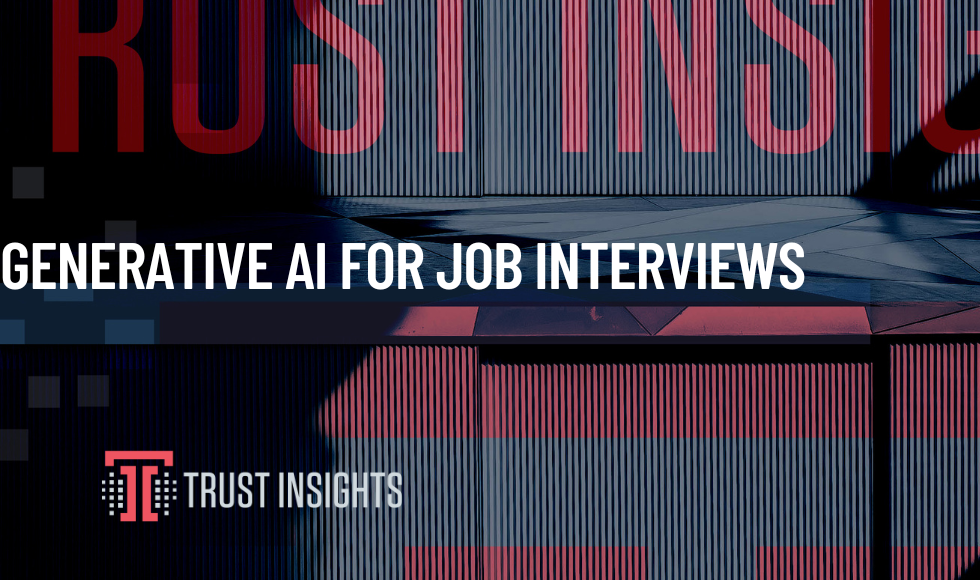In this week’s Data Diaries, let’s talk about generative AI’s application for something really helpful: preparing for job interviews. In the past week, a half dozen friends have all asked for help with various parts of the job search process, and in each case, generative AI had a role to play. I’ll use the example of my friend Maria who was applying for a position at a local restaurant.
First, why would we use generative AI for this kind of situation? Generative AI – language models in particular – are ideally suited for language tasks, and a large part of the jobs application process is unsurprisingly language. Many candidates often feel unprepared or underprepared for interviews, and this was the situation for Maria. She wasn’t sure what to expect during the interview, what questions she might face.
What we knew we had was information about the hiring manager, Cathy, both from the job description and correspondence with Cathy. We had Cathy’s LinkedIn profile as well as information about the restaurant itself. The thing that’s powerful about language models is that they contain vast amounts of general information. If you prompt them well (learn more about prompting basics at the recording of this week’s webinar), you can focus that general knowledge into specifics that you might not otherwise have, such as inferring someone’s likely personality traits or pain points.
Using Google’s Gemini – and any of the major models would have been equally suited for the task, like ChatGPT or Claude 3 – I took Cathy’s LinkedIn profile, the job description, and Maria’s resume and gave it to Gemini. I asked Gemini to simply ingest and learn information from all three pieces of text, and then to generate an outline of interview question categories that someone like Cathy would probably ask someone like Maria. Gemini came up with 5 major categories:
- Background and Motivations
- Experience and Skills
- Knowledge of Emilian Italian Cuisine
- Availability and Logistics
- Personality and Fit
In each category, I had Gemini generate 10 specific, probable interview questions that a hiring manager would care about. A good number are obvious, such as what past work experience might be relevant, and when Maria was available to work. Some were less obvious, such as “Have you ever tasted typical Emilia-Romagna wines, such as Lambrusco or Sangiovese?” but relevant to the specific position.
Finally, I had Gemini generate the one thing nearly every job candidate does poorly: a list of questions for Maria to ask of the employer. You know that moment at the end of the interview when the interviewer says, “So, what questions do you have?” So, so many people will simply say “Oh, nothing!” This is generally not a great answer, but people answer that because they get caught off guard and blank. A language model can come up with intelligent questions for you to ask so that this never happens again.
So, how did it turn out? Well, Maria got the job. She went into the interview confident, having anticipated virtually all of the questions that she would be asked. There were no curveballs, nothing that surprised her or unsettled her, and that foreknowledge made the interview process much less intimidating.
Generative AI isn’t just for marketing. Any language-based task can be a task generative AI can assist you with, so look for those opportunities and test it out as they arise. You might just get your next job with its assistance.








